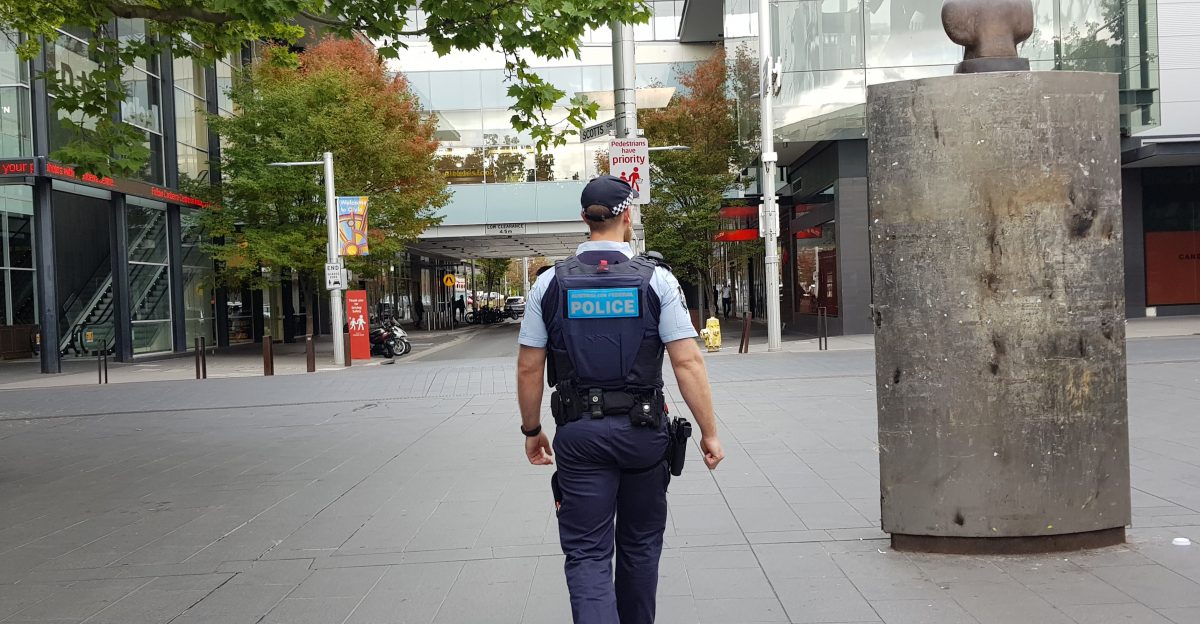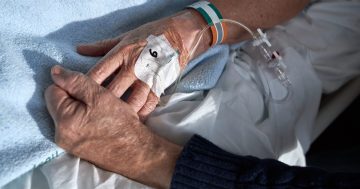
Police officers conduct investigations on behalf of the ACT Coroner to determine a person’s cause of death, including in cases of suicide. Photo: Region.
CONTENT WARNING: This article discusses suicide and voluntary assisted dying.
Improving the mental health of police officers has been highlighted as one reason why voluntary assisted dying laws should be passed in the ACT.
The Australian Federal Police Association (AFPA) is one of dozens of organisations that has made a submission to an inquiry into the legislation.
“We already see too many traumatic deaths,” union representative Troy Roberts told the select committee examining the proposed voluntary assisted dying (VAD) legislation.
“It has a significant impact on the mental health of police officers.”
Police are often called to conduct a welfare check when someone has concerns about a loved one.
Mr Roberts said, in some cases, officers would be the first to discover someone’s body.
In others, it’s a family member or passer-by.
“Some poor person, usually family members, has to find them,” Mr Roberts said.
“I’ve had to climb a tree to cut the rope and lower someone down, and it haunts me to this day.”
On average, 34 people take their lives in the ACT each year. There’s no indication how many of these are due to a person’s terminal illness as current legislation and reporting guidelines don’t allow for attribution to VAD.
Sometimes, officers will find a note from the deceased person that outlines their recent terminal diagnosis. Other times, it will be discovered as police interview a person’s doctor.
The police union has argued that while some people will continue to choose suicide despite VAD being an option, introducing this legislation would give people an option to end their lives both on their terms and with dignity.
“All too often, police attend suicide scenes, sometimes in public, where they have to physically handle or touch the deceased to confirm the death or offer medical treatment, which can negatively impact the police officers’ mental and physical well-being,” the AFPA submitted.
“It’s also traumatic for family or members of the community who are first on the scene and have to witness the person in their final resting position.”
Mr Roberts said while officers have training for these types of situations, nothing could prepare them for discovering a body during what was expected to be a welfare check.
“You’ll never take away the trauma of it, but [with these laws] you can take away the surprise element of it,” he said.
The AFPA felt the proposed legislation was solid and evidence-based but suggested the law should be reviewed every year for the first three years of implementation and then every two years after that.
It’s currently proposed the legislation not be reviewed until three years after commencement.
Mr Roberts argued this was to ensure any identified loopholes could be “jumped on” early.
“We think [the legislation] is sound and solid, and there’s enough safeguards in there to make sure it’s not misused or abused,” he said.
“[But] if there are issues … I think three years is a little bit too long [for a review].
“I’m not sure we could wait three years for [potential] loopholes to be closed.”
He conceded reviews were labour-intensive and suggested VAD data should be part of the responsible directorate’s annual report.
Another issue raised in several submissions was that people with reduced decision-making capacity, such as those diagnosed with dementia, won’t be considered eligible to access VAD.
The submission from National Seniors Australia ACT branch took this a step further, arguing the legislation should also meet the needs of people who are “of an advanced age who do not have a terminal illness or a serious condition, but whose quality of life is intolerable”.
Representative Michael Thomas Boesen outlined people experiencing “multiple geriatric syndrome” – which can be typical of advanced age, such as sight and hearing impairments, osteoarthritis, balance problems and weak bones – should also be considered eligible.
“Those conditions impose an insufferable burden on the person,” he said.
Public hearings into the legislation continue.
Further information on the proposed voluntary assisted dying laws for the ACT is available online.
If the issue of voluntary assisted dying raises issues for you or your family, you can contact Lifeline on 13 11 14 or Griefline on 1300 845 745.





















